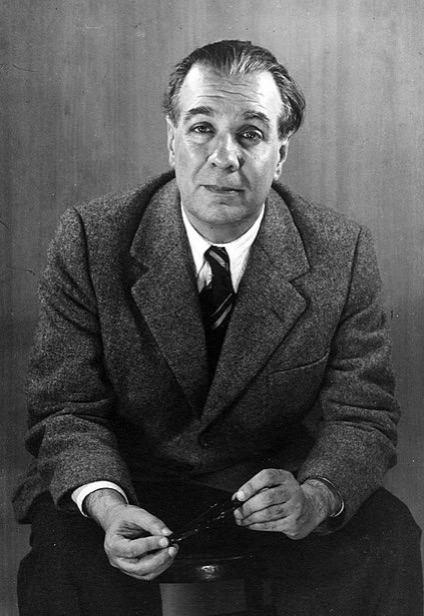
Jorge Luis Borges was born on August 24, 1899, in Buenos Aires, Argentina. He grew up in a multilingual household and was exposed to various languages and cultures from an early age. Jorge started writing poetry at a young age, influenced by a family with a strong literary background and exposure to his father’s extensive library. He had a unique and complex literary style that often blended elements of reality and fiction, creating intricate and thought-provoking narratives. He was known for his philosophical and metaphysical explorations, as well as his deep interest in literature, history, language, and the nature of reality.
Borges published his first collection of poetry, “Fervor de Buenos Aires,” in 1923, gaining recognition for his use of innovative forms and intricate metaphysical themes. He continued to publish poetry, essays, and short stories throughout his career. Borges was heavily influenced by a wide range of literary and philosophical traditions, including European literature, Eastern mysticism, and classical literature. He often explored themes of labyrinths, mirrors, infinity, and the blurred line between reality and imagination.
He is perhaps best known for his short stories, many of which are collected in books like “Ficciones” and “El Aleph.” His stories often challenge conventional narrative structures and explore the boundaries of human perception and understanding. Borges is sometimes associated with the magical realism movement, which involves blending fantastical elements with reality in a seamless manner. While he is often grouped with magical realism writers, his work can be seen as a precursor to the genre rather than a direct example of it.
Borges began to lose his eyesight in the 1950s, stemming from a hereditary condition. Despite his increasing blindness, he continued to write and dictate his work, with the help of collaborators. In the years that following, he received numerous awards and honors for his contributions to literature, including the Cervantes Prize. His works have been translated into many languages and continue to be studied and admired by readers, writers, and scholars around the world.
Jorge Luis Borges’s writing style and ideas have had a profound impact on literature, philosophy, and the exploration of human thought. His works continue to be celebrated for their intellectual depth, poetic beauty, and imaginative richness. He is considered one of the most significant and influential figures in world literature, particularly in the realm of modern literature and the genre of magical realism. Borges died of liver cancer on June 14, 1986, in Geneva at 86 years of age. Although Jorge was a professed agnostic, his burial was preceded by an ecumenical service at the Protestant Cathédrale de Saint Pierre on 18 June. in Geneva, Switzerland.
